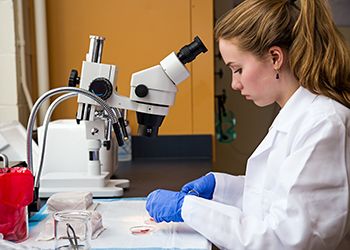Professor/Dean, College of Health Sciences
Department of Biomedical Sciences
Dr. William E. Cullinan is a professor and dean of the College of Health Sciences and director of the Integrative Neuroscience Research Center. Cullinan received his bachelor’s degree in physical therapy from Marquette in 1981 and earned his Ph.D. in neuroscience from the University of Virginia in 1991. He did post-doctoral research at the University of Michigan (1991-95) before joining the Marquette faculty in 1995. His research laboratory, which has received funding from the National Institute on Mental Health and the National Alliance for Research on Schizophrenia and Depression, focuses on brain circuits involved in mental illness. He has authored numerous research articles and chapters on functional neuroanatomy and neuroendocrinology.
Dr. Cullinan has taught courses in anatomy, neuroanatomy and neuroscience at the undergraduate and graduate levels, and received the university’s Faculty Award for Teaching Excellence in 2002. He established and directs a summer Neuroanatomical Dissection seminar which annually draws 80 to 100 professionals and educators from across the country.
Education
- B.S. 1981, Marquette University
- Ph.D. 1991, University of Virginia
- Postdoctoral Fellowship 1991-95, University of Michigan
Courses Taught
- BISC 3135: Clinical Human Anatomy
- BISC 3136: Gross Anatomy for the Biomedical Sciences
- BISC 7230: Medical Anatomy
- BISC 7515: Biomedical Systems 1
Research Interests
Research in the Cullinan Lab
Research in my laboratory is directed at understanding the neurobiology of stress and the link between stress and psychiatric illness. The ability to cope with changing internal or external environmental demands (i.e. stress) is known to involve the hypothalamic-pituitary-adrenal (HPA) axis. Stress-mediating neural inputs converge upon a final common pathway, the origin of which is known to be the CRH-containing neurons in the hypothalamic paraventricular nucleus (PVN). Activation of these neurons results in a cascade of events culminating in the release of adrenal corticosteroids. Chronic elevated corticosteroid levels have been linked to illnesses such as major depression.
Dr. Cullinan's research page



